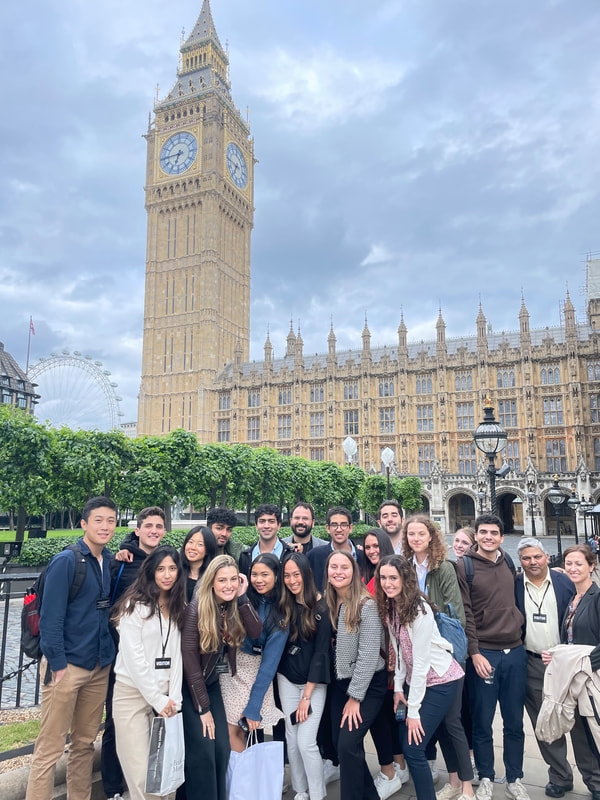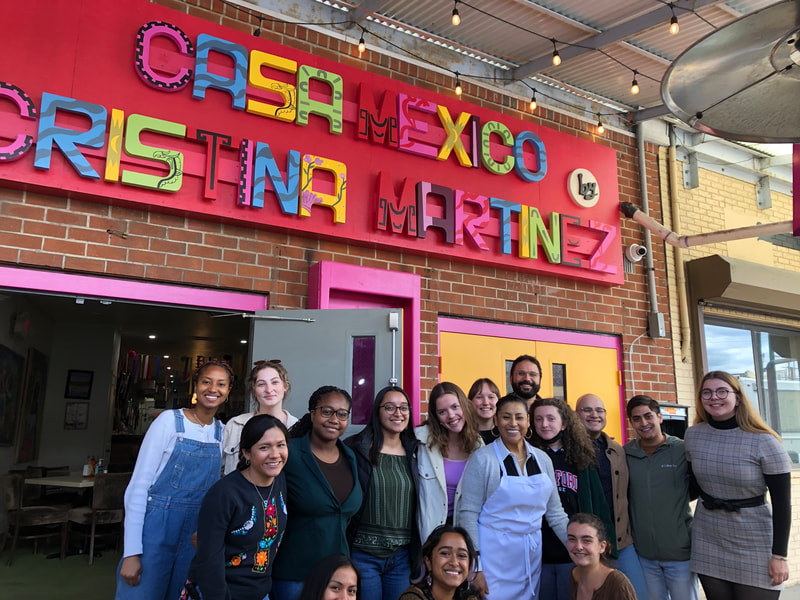I teach courses on a wide range of topics in political science and international studies at both the undergraduate and graduate levels (see below for recent courses). Pedagogically, I am a strong proponent of experiential learning and most of my classes incorporate off-campus activities where students engage with and learn from the perspectives of policymakers, practitioners, and community organizations. Together with my students, I have worked to advance public facing engaged scholarship, through initiatives such as the Migration Stories Project, a collection of oral histories documenting the experiences of immigrants living in the United States.
I have extensive experience in the field of international and experiential education, having organized and led numerous international academic trips for undergraduate, graduate, and MBA students in my capacity as Director of the Huntsman Global Immersion Program and former Director of the Europe Regional Program at the Lauder Institute for Management & International Studies at the University of Pennsylvania.
I have extensive experience in the field of international and experiential education, having organized and led numerous international academic trips for undergraduate, graduate, and MBA students in my capacity as Director of the Huntsman Global Immersion Program and former Director of the Europe Regional Program at the Lauder Institute for Management & International Studies at the University of Pennsylvania.
|
On a site visit to British Parliament for a course on Brexit
|
Meeting with Chef Cristina Martinez, immigrant rights activist
|
Recent Courses (* indicates experiential learning course)
University of Pennsylvania (2018 - 2023)
- INSP 1001: International Studies and Business: A Global View
- INSP 4998: Senior Thesis, International Studies
- INTS 611: Regional Analysis: Lauder Europe Immersion*
- INTS 991: Lauder M.A. Capstone: Global Knowledge Lab
- INTS 7610: Lauder Global Immersion*
- MGMT 4090: Huntsman Senior Capstone
- WH 298: Wharton International Program: Global Immersion*
Swarthmore College (2016 - 2023)
- POLS 3: Politics Across the World
- POLS 31: Borders & Migration*
- POLS 43: Identity Politics*
- POLS 54: Middle East Politics
- POLS 79: Islam, Race, & Empire*
- POLS 92: Senior Comprehensive

